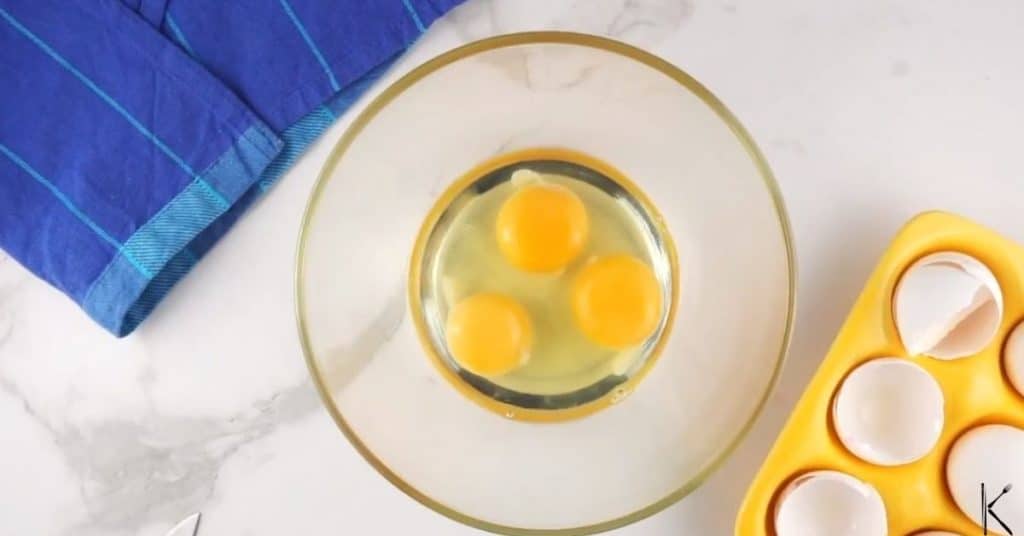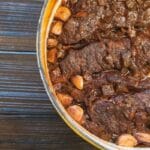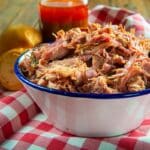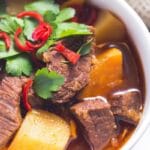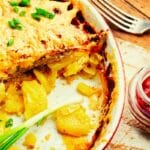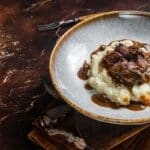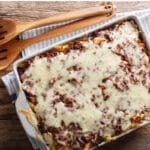In summary: Yes, you can freeze eggs, but you need to remove them from the shell, mix them, and use different methods for whites, yolks, and cooked eggs.
Eggs are one of the most versatile ingredients out there. Having fresh eggs in the pantry is an easy way to guarantee that you always have a meal option on hand whether it’s a quick fix dinner, snack, last-minute lunch guests, or lazy day brunch.
Opening the fridge to the smell of rotten eggs is something no one wants, but finding an immediate purpose for leftover yolks or whites is not always practical.
The good news is that you can freeze eggs to extend their shelf life. This means no food waste, no nasty odors, and saving money in the long run.
Eggs can be temperamental on freezing, so it is important to use the correct method to ensure their optimal preservation. Here is a full guide to freezing eggs.
Can Chicken Eggs Be Frozen?
Yes, eggs can be frozen, however, it is important to use the correct methods to ensure they don’t spoil or change texture during freezing. The preparation method you use to freeze eggs will depend on whether you are freezing egg whites, yolks, or cooked eggs.
Keep the following factors in mind when considering freezing eggs:
If you have more eggs than you can use, make sure you only freeze eggs that are still fresh. Eggs nearing their expiry are best cooked fully and used immediately or discarded.
Can you freeze eggs in the shell? Eggs cannot be frozen in the shell as the shells will crack on freezing. Eggs always need to be removed from the shell and mixed when freezing, which means you won’t be able to use your frozen eggs to make a sunny-side-up breakfast.
Raw egg yolks and whites can be frozen. Freezing egg yolks on their own requires a little extra care to prevent them from becoming gelatinous.
Cooked egg whites are not suitable for freezing as they will turn rubbery, watery, and unappetizing once thawed.
Cooked egg yolks can be frozen successfully on their own.
How To Freeze Raw Whole Eggs
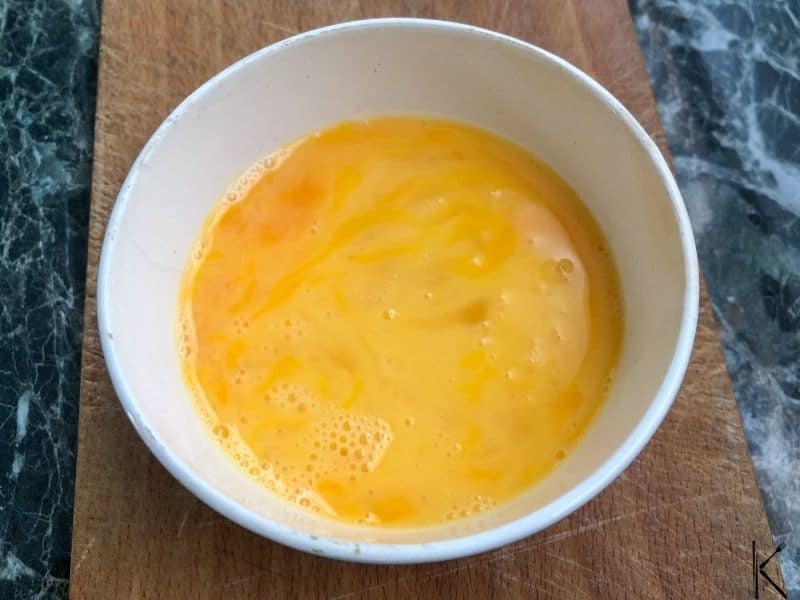
Step 1: Mix
Crack whole eggs into a bowl and lightly stir the yolks and whites together without incorporating air into the mixture. If you want to freeze the eggs in portion sizes of 2 or 3 eggs, keep the portions separate, mixing only 2 or 3 eggs together at a time.
Step 2: Prepare Muffin Tins
Line a muffin tin with plastic wrap so that the plastic hangs out over the edge of each compartment once pressed down. Essentially the wrap needs to be a little bigger than the cup itself.
This will help you remove the eggs once frozen by simply pulling the clingfilm upwards and out as opposed to having the frozen eggs stick to the muffin pan.
Step 3: Pre-freeze
Pour the desired egg portions into each lined muffin compartment and place the muffin tin into the freezer until fully frozen. For smaller portions, you can also use ice cube trays which do not have to be lined with cling film.
Step 4: Bag It
Once frozen, remove the individual eggs from the muffin tin by pulling out the cling film. Remove the plastic and pop the frozen egg rounds into resealable freezer bags. Press out any remaining air from the bag before sealing to prevent freezer burn.
Alternatively, you can also use freezer containers.
Step 5: Label and Freeze
Label the zip top bag with the date and place it in the freezer.
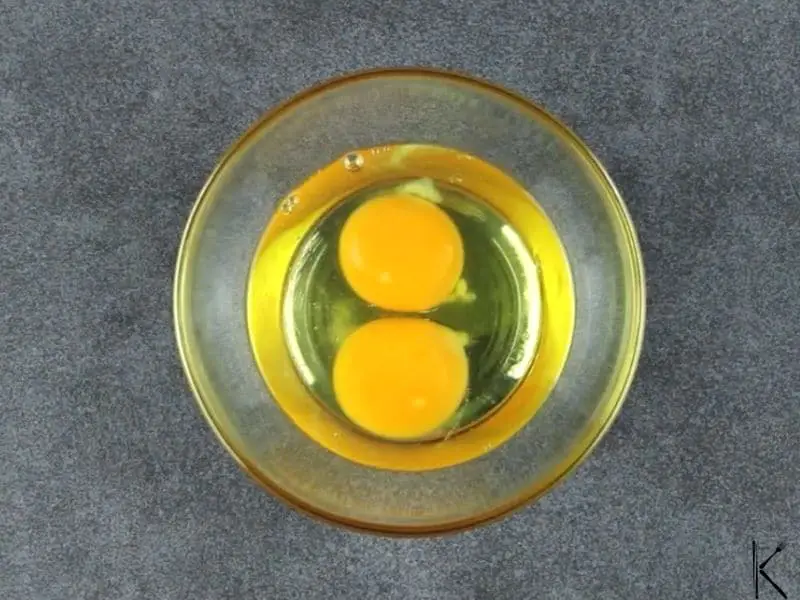
How To Freeze Raw Egg Yolks
Step 1: Separate Eggs
Crack the eggs and separate the egg yolks from the whites, keeping them in different bowls.
Step 2: Prepare Yolks
If the yolks will be used in a savory dish once thawed, add half a teaspoon of salt for every cup of yolks.
If the eggs are going to be used in a sweet dessert or baked recipe, add 1.5 teaspoons of sugar for every cup of yolks. Gently mix the sugar or salt with the egg yolks just until the yolks have an even consistency.
Step 3: Pre-freeze
Pour the egg mixture into an ice cube tray and place it in the freezer until fully frozen.
Step 4: Bag It
Once frozen, remove the egg yolk cubes and pack them into a resealable freezer bag. Press out any air before sealing the bag to protect the yolks from unnecessary contact with air which will cause them to spoil.
Step 5: Label and Freeze
Label the bag with the date and pop it back into the freezer.
How To Freeze Raw Egg Whites
Step 1: Separate Eggs
Crack open the eggs and separate the egg yolks from the whites, keeping them in different bowls.
Step 2: Light Whisk
Very lightly, stir the whites with a clean fork just to break up the membranes, so they pour evenly. You do not want to incorporate any air into the egg whites.
Step 3: Pre-Freeze Egg Whites
Pour the egg whites into an ice cube tray and place it in the freezer until fully frozen. One cube equals approximately one egg white.
Alternatively, you can also use a muffin tin lined with cling film for larger portions.
Step 4: Bag It
Once frozen, remove the egg white cubes from the freezer and pop them out of the ice cube tray. If you struggle to get them out, hold the tray upside down under cold running water for just a few seconds to loosen the bottom.
Pack them into a resealable freezer bag. Press out any air before sealing the bag to protect the egg whites from unnecessary contact with air which will cause them to spoil.
Alternatively, you can also use a freezer safe container.
Step 5: Label and Freeze
Label the bag with the date and place it back into the freezer.
How To Freeze Cooked Egg Yolks
Step 1: Remove the Yolks
Remove the hard boiled egg yolks from the egg white by gently scooping them out with a teaspoon.
Step 2: Pack
Pack the egg yolks into a resealable freezer safe bag and gently press out any air without squashing the yolks. Seal the bag.
Step 3: Label and Freeze
Label the bag with the date and freeze.
How To Thaw Frozen Eggs
Always thaw eggs in the refrigerator overnight and never at room temperature. Remove the frozen eggs from the freezer and place them in a covered bowl to thaw in the fridge.
The eggs should be cooked fully to 160 °F (71 °C) before eating to reduce the risk of harmful bacterial growth. Cook the eggs within 1 day of thawing.
Use the below guide to measure out frozen raw eggs for recipes:
- 1.5 tablespoons yolks = 1 egg yolk
- 2 tablespoons whites = 1 egg white
- 3 tablespoons eggs = 1 whole egg
Types of Eggs
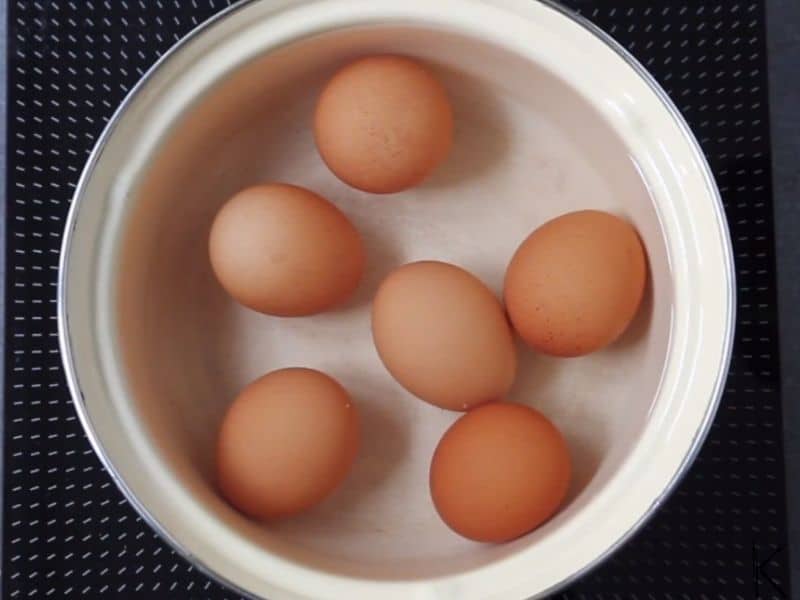
The most commonly used eggs in cooking are chicken and duck eggs. Smaller quail eggs are also occasionally used as a gourmet component.
Eggs consist of the hard, yet fragile outer shell, egg white known as the albumen, and the yellow egg yolk contained within a thin membrane. Eggshell colors vary from white, brown, and pink, to speckled blue-green.
Chicken eggs are used in various dishes worldwide, both sweet and savory. They are used in baked goods, can be fried, boiled, poached, pickled, and popularly made into scrambled eggs for breakfast.
The different qualities of the high-protein egg whites, and contradictory high-fat yolks allow the various components of the egg to serve unique purposes when used separately when combined with salt or sugar.
Egg whites can be aerated to form foams, meringues, and mousse, whereas egg yolks are used as emulsifiers and a thickener in sauces and custards.
See more: How to reheat eggs
FAQs
Conclusion
Eggs are nutritious and versatile. They are also great in sweet and savory applications, in breakfast, lunch, or dinner dishes.
Considering how handy it is to have them around, the last thing you want to do is waste eggs. Whether you have more eggs than you need in the pantry or have used only one part of the egg for a recipe, freeze them to save money, and food waste.
Make sure to thaw the frozen eggs in the refrigerator and cook them through within a day of defrosting to avoid the growth of harmful bacteria. Make a frittata, bake a cake, cook up a bowl of egg-fried rice, or make some pancakes. No need to see any eggs go to waste again.
Up next: How To Freeze Egg Salad
